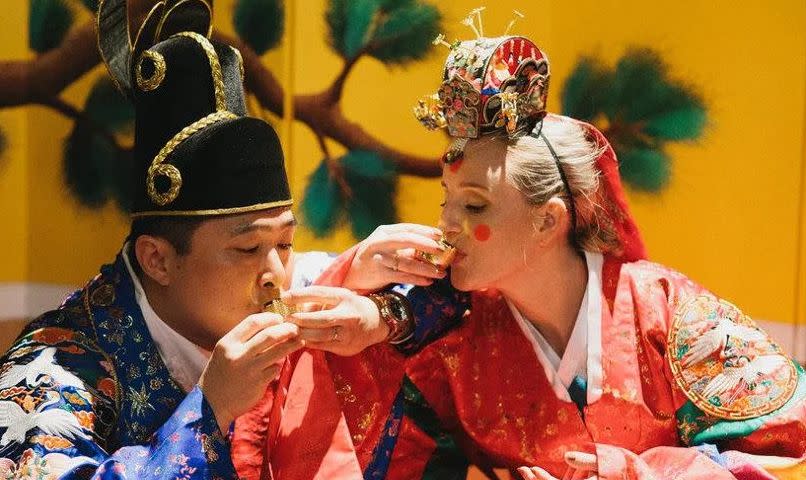I illegally ran in a federal election – then the North Koreans intervened

The resignation of 15 politicians in the last couple of years due to their status as dual citizens has invited widespread disbelief that they had failed to ensure they were compliant with the law.
But in a country like Australia where almost 30 per cent of people are born overseas, it’s very easy to forget – or not even realise in the first place – that you could be a dual citizen.
And I can tell you this first hand because I once ran for public office without realising I had dual citizenship, too.
I was born in South Korea and came to Australia with my parents as an 8-year-old. A few years later my parents were naturalised as Australian citizens. Along with my sister, I was automatically included in that process as a minor.
For many overseas-born Australians, this would have been the end of the matter. Pledging allegiance, holding no other passports, travelling and being welcomed as an Australian was my unambiguous, singular identity.
For me — as I’m sure is the case for many others — the potential complications involved with dual citizenship would not even have crossed my mind.
Related story: Who are Australia’s biggest political donors?
Related story: Labor vs Liberal: If you’re a migrant or refugee...
Related story: $10 billion and 6 weeks long: These are election costs around the world
Many years later, but long before I became a journalist, I was preselected to run for lower house seats in the 2003 NSW and 2004 federal elections.
While I was running for a minor party (the Australian Democrats) and was not seriously expected to win, both occasions participating in the democratic process were experiences I will cherish forever.
But I ran in both those elections without renouncing my South Korean citizenship.
With so many Australians born overseas, dual citizenship was a question that was never even raised, either by the party or in my own mind. Had I been miraculously elected, I later would have found myself in the same quagmire as those 15 legislators.
It was not until many years after my political foray, in 2010, that my status as a dual citizen was brought to light.
I had applied to go on a holiday to the hermit country of North Korea.
South Koreans are not normally admitted into “enemy” territory, so I had to ensure my visa application unambiguously showed I was travelling there as an Australian.
The travel agent, who specialises in North Korean tourism, enquired about my Korean ancestry.
“We’re going to need you to get documentation from the South Korean government that you’re not a citizen,” she told me.

This request set off a long chain of paperwork. But with the kind help of my cousin in Seoul, I managed to get a renunciation of citizenship document from the South Korean authorities.
While there was a tinge of sadness that the letter coldly stated my name had been wiped off all family and bureaucratic records in that country, it merely confirmed what I had believed to be true for the preceding 20 years: that I am Australian.
One oddity is that as my parents and sister have not explicitly renounced their original citizenship, their names would still be on various Korean government databases – as a family of three.
I’ll have to remind them of this when they decide to run for parliament.
This story was originally published on Business Insider. It has been updated for publication here.
Make your money work with Yahoo Finance’s daily newsletter. Sign up here and stay on top of the latest money, news and tech news.

 Yahoo Finance
Yahoo Finance 